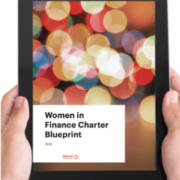As we start entering the ‘new norm’ of a post-covid world we started to think about how the rest of 2020 and beyond will change the financial services sector.
Firstly let’s take away the implications of Covid-19 as they are really still an unknown quantity and we really would be making ‘best guesses’.
International Payment Transactions – Smaller and Faster
During the start of 2020 we have seen an acceleration in real-time low-value payments across borders at a reduced cost, driven by customer requirements for on-demand payments. This has resulted in a gaining of transaction and scaling up for suppliers of interledger and distributed ledger technologies.
Watch out for a raft of pioneering Cloud-hosted banking technology providers
Many banks are already using banking-as-a-service tech platforms to evolve their cost-to-serve and cost-to-charge offerings. However technology costs with the operation and development of these services continues to climb we fully expect the finance sector to turn to cloud providers to reduce these costs.
Cloud-hosted banking tech providers have already developed new platforms with the latest technology, and are best placed to economically plug into the emerging blockchain networks employed and other areas if FINTECH. We wonder how longer it will be until we reach the tipping point from face-to-face premise banking to agile, cheaper cloud hosted banking.
Creating a Ripple in Mobile App Payments
Again we are seeing consumer purchase payment choices changing as many embrace mobile app as their preferred payment choice. Linking with blockchain technology, mobile apps driven by technology like Ripple are key to achieving this especially in the tourist industry (when it kicks back in) as a UK Tourist visiting the far east could trigger instant cross-border payment from their Sterling Account to a merchants local currency account.
The use of Ripple will also enable SMEs to invoice and receive international payments immediately, in small amounts. This reduces cash flow issues for the more agile SMEs as well as reducing cost-of-business, alongside opening up the potential of new markets.
The Consumers Micro Wallet
The use of micropayments has traditionally been limited to pure payment messenging apps, however as the larger tech companies introduce their own payment services, we can expect many developers rushing to create solutions for in-app, real-time on-demand payment processing.
Will the future be built on Blockchain?
With about 80% of the total of digital asset trading coming from Asia there has always been an appetite for payment innovation. Blockchain,with its ability to make micro-transactions such as loans, payments, remittances – much more efficient and transparent, has been a key factor in this innovation.
There is still an opportunity for continued advances for both consumer and enterprise remittances, there are opportunities for the use of blockchain technology to primarily address issues of liquidity, speed of implementation, and the cost of readily available capital.
So what about the implications of COVID?
The UK’s focus during the COVID-19 outbreak has been in the preservation of jobs and supporting the self-employed. Measures have been implemented to help businesses of all sizes manage the immediate cash flow problems which came with the pandemic.
Many have spoke about a repeat of the 2008 Financial crisis, however this time the banking industry is being seen as an integral part of the solution not the problem. UK regulators have acted quickly to provide easier capital and credit conditions for banks.
The final impact of COVID-19 might not be known for months or years, it will however effect the whole of the UK to differing extents. Oxford Economics estimates that cities such as Cambridge and Bristol may be more resilient due to their larger professional services and digital industries; Only time will tell.
Firstly let’s take away the implications of Covid-19 as they are really still an unknown quantity and we really would be making ‘best guesses’.
International Payment Transactions – Smaller and Faster
During the start of 2020 we have seen an acceleration in real-time low-value payments across borders at a reduced cost, driven by customer requirements for on-demand payments. This has resulted in a gaining of transaction and scaling up for suppliers of interledger and distributed ledger technologies.
Watch out for a raft of pioneering Cloud-hosted banking technology providers
Many banks are already using banking-as-a-service tech platforms to evolve their cost-to-serve and cost-to-charge offerings. However technology costs with the operation and development of these services continues to climb we fully expect the finance sector to turn to cloud providers to reduce these costs.
Cloud-hosted banking tech providers have already developed new platforms with the latest technology, and are best placed to economically plug into the emerging blockchain networks employed and other areas if FINTECH. We wonder how longer it will be until we reach the tipping point from face-to-face premise banking to agile, cheaper cloud hosted banking.
Creating a Ripple in Mobile App Payments
Again we are seeing consumer purchase payment choices changing as many embrace mobile app as their preferred payment choice. Linking with blockchain technology, mobile apps driven by technology like Ripple are key to achieving this especially in the tourist industry (when it kicks back in) as a UK Tourist visiting the far east could trigger instant cross-border payment from their Sterling Account to a merchants local currency account.
The use of Ripple will also enable SMEs to invoice and receive international payments immediately, in small amounts. This reduces cash flow issues for the more agile SMEs as well as reducing cost-of-business, alongside opening up the potential of new markets.
The Consumers Micro Wallet
The use of micropayments has traditionally been limited to pure payment messenging apps, however as the larger tech companies introduce their own payment services, we can expect many developers rushing to create solutions for in-app, real-time on-demand payment processing.
Will the future be built on Blockchain?
With about 80% of the total of digital asset trading coming from Asia there has always been an appetite for payment innovation. Blockchain,with its ability to make micro-transactions such as loans, payments, remittances – much more efficient and transparent, has been a key factor in this innovation.
There is still an opportunity for continued advances for both consumer and enterprise remittances, there are opportunities for the use of blockchain technology to primarily address issues of liquidity, speed of implementation, and the cost of readily available capital.
So what about the implications of COVID?
The UK’s focus during the COVID-19 outbreak has been in the preservation of jobs and supporting the self-employed. Measures have been implemented to help businesses of all sizes manage the immediate cash flow problems which came with the pandemic.
Many have spoke about a repeat of the 2008 Financial crisis, however this time the banking industry is being seen as an integral part of the solution not the problem. UK regulators have acted quickly to provide easier capital and credit conditions for banks.
The final impact of COVID-19 might not be known for months or years, it will however effect the whole of the UK to differing extents. Oxford Economics estimates that cities such as Cambridge and Bristol may be more resilient due to their larger professional services and digital industries; Only time will tell.
Campbell & Fletcher Recruitment work across the United Kingdom sourcing the highest equality talent in the banking and financial services industries.








